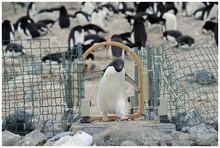
Back جمع البيانات Arabic Recol·lecció de dades Catalan Erhebung (Empirie) German Recopilación de datos Spanish گردآوری داده Persian Adatgyűjtés Hungarian 데이터 수집 Korean Pengumpulan data Malay Coleção de dados Portuguese Сбор данных Russian
This article has multiple issues. Please help improve it or discuss these issues on the talk page. (Learn how and when to remove these template messages)
|

Data collection or data gathering is the process of gathering and measuring information on targeted variables in an established system, which then enables one to answer relevant questions and evaluate outcomes. Data collection is a research component in all study fields, including physical and social sciences, humanities,[2] and business. While methods vary by discipline, the emphasis on ensuring accurate and honest collection remains the same. The goal for all data collection is to capture evidence that allows data analysis to lead to the formulation of credible answers to the questions that have been posed.
Regardless of the field of or preference for defining data (quantitative or qualitative), accurate data collection is essential to maintain research integrity. The selection of appropriate data collection instruments (existing, modified, or newly developed) and delineated instructions for their correct use reduce the likelihood of errors.
- ^ Lescroël, A. L.; Ballard, G.; Grémillet, D.; Authier, M.; Ainley, D. G. (2014). Descamps, Sébastien (ed.). "Antarctic Climate Change: Extreme Events Disrupt Plastic Phenotypic Response in Adélie Penguins". PLOS ONE. 9 (1): e85291. Bibcode:2014PLoSO...985291L. doi:10.1371/journal.pone.0085291. PMC 3906005. PMID 24489657.
- ^ Vuong, Quan-Hoang; La, Viet-Phuong; Vuong, Thu-Trang; Ho, Manh-Toan; Nguyen, Hong-Kong T.; Nguyen, Viet-Ha; Pham, Hiep-Hung; Ho, Manh-Tung (September 25, 2018). "An open database of productivity in Vietnam's social sciences and humanities for public use". Scientific Data. 5: 180188. Bibcode:2018NatSD...580188V. doi:10.1038/sdata.2018.188. PMC 6154282. PMID 30251992.
© MMXXIII Rich X Search. We shall prevail. All rights reserved. Rich X Search